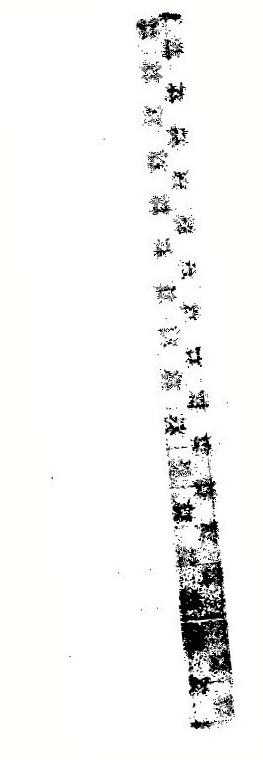It was the type of sensation where the brain, in its naivete, free associates, conjuring other substances that give way with the same degree of resistance--Play-Doh, a snickerdoodle just out of the oven--until it auto-corrects, settling on the most rational identification: feces. This was Reese's foot--her shoe, right in the middle of it. She had been on her phone, and now her body, responding to the brain's delinquent report, jolted to a semi-frozen halt. The eyes were already scanning for damage. These were her beige pumps--café au lait, the box proclaimed--and she'd had them for less than a week.
Fury, in public, is often perfectly masked. It spikes with a quick design of the face--shock, disgust, frustration--and is then wiped clean by self-conscious display: looking around, a nervous giggle, a roll of the eyes. Reese displayed none of these. She simply lowered her lids, grimacing slightly, then let that expression melt into one of doomed resignation. There was no undoing this. Now came the requisite task of scraping, wiping, swabbing. One world ambushed by another.
Why would such a cramped city, with dwindling living space and astronomical rent, invite a species--one that otherwise preferred large stretches of open land to manage the demands of its nature--onto its streets? It was objectively illogical. Against common sense. Humans were that desperate for companionship.
"The owner needs to be shamed," Gretchen said from her darkened corner. Reese's friend Gretchen had been born with a defect, which was an excellent nose. For a period of time, Gretchen had worked abroad for a designer brand that created nostalgia perfumery, which meant that she spent her days inside a brightly lit sterilized room summoning other people's dreams by combining acutely defined smells. She even wore a white lab coat. But the work itself was increasingly hostile to her neural plexus, frequently overloading her senses with powerful reverie to the point that Gretchen was in a state of olfactory trauma, forcing her to abandon employment. A coworker found her one night standing in the water of Fontaine des Mers, mumbling the phrase l'eau claire, l'eau claire. Upon flying home, Gretchen rented a top floor apartment, shut the windows and closed the blinds. Never again would she be accosted by emotional odors. Reese brought her takeout on Fridays. The two would sit on the floor, share the food, drink vodka from miniature bottles, and commiserate in the half-dark.
"It's not the dogs themselves," Reese said. "They don't choose to deposit their shit where people walk. The blame lies with irresponsible humans." Using a fork, she swirled spaghetti into a spoon. "They name them Beau, or Bear, or Duke. Dogs are hostages. They don't have any say. It's the owners--the people who coerce them into lives they'd never choose for themselves--who deserve persecution."
"Public shaming," said Gretchen.
"People are impervious to shame." Reese gazed up into the blurry space of the ceiling. "They need to be stripped of something. Something they love. That's the only way people pay attention."
"Strychnine," Gretchen said. "Doggie treats." It was hard to detect Gretchen's face from where she was sitting. Her voice simply emanated from the dark.
"Didn't that happen three or four years ago? Somebody laced meatballs and left them in the parks. Something like fifty dogs died?"
In place of a reply, a slender beam of light escaped from around the blinds into the room, illuminating a miniature bottle as its outline tilted in space.



